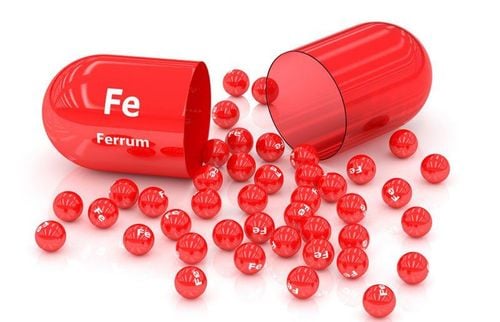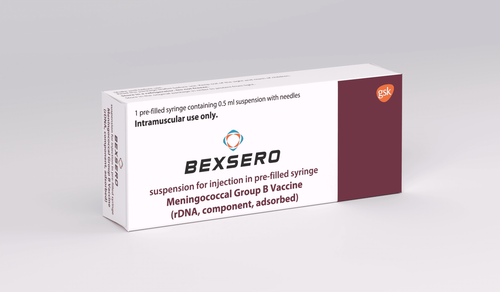This is an automatically translated article.
Decitabine belongs to a group of anti-cancer drugs, commonly used to treat myelodysplastic syndromes (anemia or leukemia). The structure of Decitabine is similar to Nucleoside with the mechanism of action capable of blocking cell growth to achieve a therapeutic effect.1. What is Decitabine for?
Decitabine drug has an isomer structure with cytidine deoxynucleoside that has the ability to selectively inhibit DNA methyltransferase enzymes at low doses leading to DNA methylation, activation of tumor suppressor genes, promotion of cell differentiation or senescence. cell then the cell will die programmed. Therefore, Decitabine is usually indicated for the treatment of myelodysplastic syndromes, adult patients with newly acquired or secondary acute myeloid leukemia (AML), and patients who have not undergone standard chemotherapy.The drug is contraindicated in patients with hypersensitivity to any of the ingredients and breast-feeding women.
2. Dosage of the drug Decitabine
Decitabine is prepared as a powder for injection, usually mixed with a solution for injection, then infused intravenously over 3 hours, every 8 hours for 3 days. A primary treatment cycle is this duration and may be repeated every 6 weeks for eligible patients. Decitabine is usually taken for at least 4 cycles or longer as prescribed by your doctor. Dosage of Decitabine drug in the treatment of myelodysplastic syndrome is:
Treatment regimen 1: the first treatment cycle will use 15 mg/m2 skin intravenous infusion continuously over 3 hours repeated every 8 hours in 3 days. In addition, patients can receive antiemetic therapy with standard doses. Treatment regimen 2: 20 mg/m2 of skin by continuous intravenous infusion over 1 hour repeated daily for 5 days, cycle repeated every 4 weeks along with antiemetic treatment with standard dose. During a treatment cycle the dose of Decitabine is 20 mg/m2 body surface area by intravenous infusion over 1 hour and continuously for 5 days (total of 5 doses per treatment cycle). The total daily dose should not exceed 20 mg/m2 and the total dose per treatment cycle should not exceed 100 mg/m2. If a dose is missed, it should be started as soon as possible, repeated every 4 weeks depending on the clinical response of the patient and the toxicity occurring. If, after 4 cycles, hematologic parameters have not returned to pre-treatment levels or if disease progression is considered non-responder, the option of decitabine replacement therapy should be considered. Prophylaxis of vomiting and nausea in patients receiving decitabine is not routinely recommended but may be used as needed. Special subjects when using Decitabine:
Patients with hepatic impairment are not required to reduce the usual dose. Patients with renal impairment may require dose reduction as needed. Decitabine should not be given to children with AML under 18 years of age because efficacy has not been established.
3. Decitabine side effects
In some patients when using Decitabine, side effects may occur such as:
Pneumonia, urinary infection; Fever, neutropenia, thrombocytopenia, anemia; Increased blood sugar; Nosebleed; Diarrhea, nausea; Abnormal liver function; Cardiomyopathy; Acute febrile neutropenic dermatosis (Sweet's syndrome); Interstitial lung disease ; Inflammatory bowel disease, including colitis, cecal inflammation.
4. Precautions when using Decitabine:
Some general precautions when using Decitabine include:
Bone marrow failure and complications such as infection and bleeding may occur in AML patients which may be aggravated by Decitabine treatment Cases of interstitial lung disease no indication of an infectious etiology has been found in patients receiving decitabine, therefore careful evaluation of patients with acute onset or unexplained worsening of pulmonary symptoms is necessary to rule out pulmonary disease. interstitial. In patients with a history of severe congestive heart failure or clinically unstable heart disease, the safety and efficacy of Decitabine have not been established. Decitabine should not be used during pregnancy and women of childbearing potential not using effective contraception because of possible teratogenic effects. Decitabine is contraindicated in lactation, so if treatment is imperative, breastfeeding should be discontinued prior to use of Decitabine. Men are advised not to have children while receiving injectable Decitabine and for 2 months after completing treatment. Some drug interactions with Decitabine that may be encountered include:
Due to low plasma protein binding in vitro, Decitabine is less able to compete for plasma protein binding sites of other drugs. Decitabine is a weak inhibitor of P-gp-mediated transport in vitro and therefore also does not affect P-gp-mediated transport of co-administered medicinal products. Above is some information about the use of Decitabine, if you need advice or have any questions, please consult a qualified doctor / pharmacist for answers.
Please dial HOTLINE for more information or register for an appointment HERE. Download MyVinmec app to make appointments faster and to manage your bookings easily.













